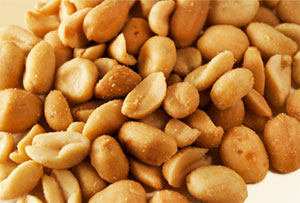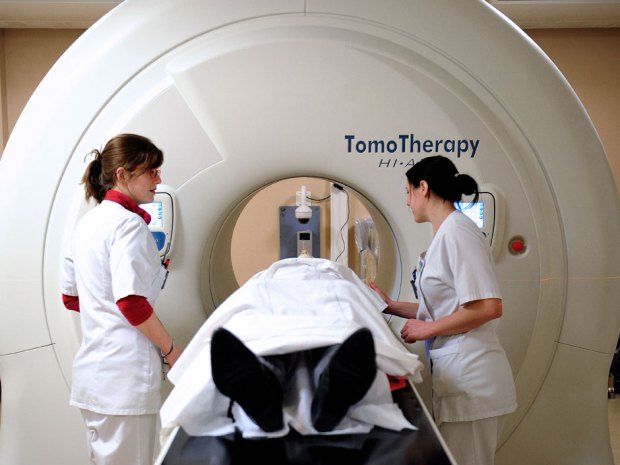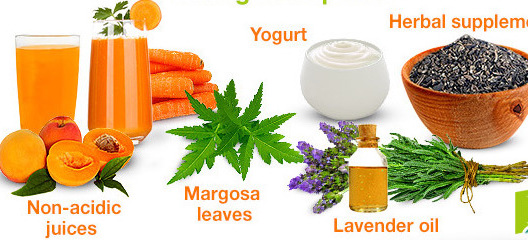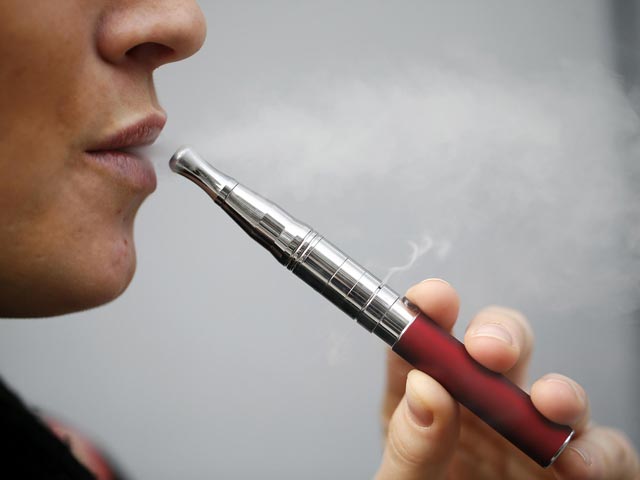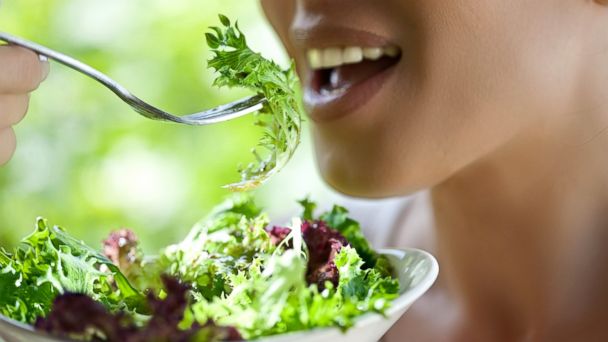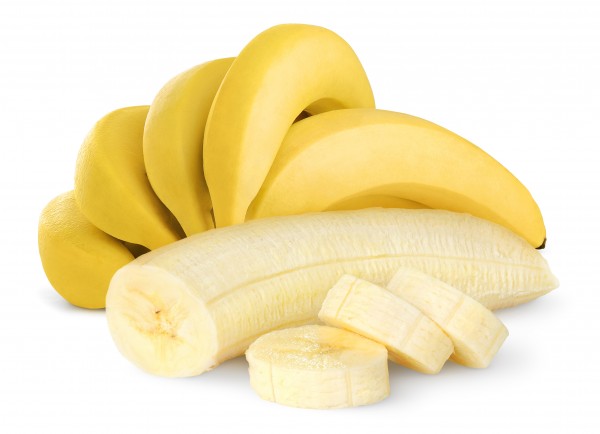Sometime this morning, during your shower or at work, you probably did a mental run-through of your day. You decided when you’d tackle various tasks and errands. Perhaps you vowed to hit the gym at lunchtime. Maybe you plotted to get out of something (apologies, PTA meeting). The one thing you forgot to plan for: happiness.

With all the books on bliss and the mood-boosting technology that does everything for us but laugh, we expect happiness to show up on our doorstep, like a pizza. But we have to make it happen.
“When you’re young, other people orchestrate your enjoyment of life,” notes Barbara Fredrickson, PhD, a social psychologist, director of the Positive Emotions and Psychophysiology Lab at the University of North Carolina at Chapel Hill and author of Positivity. “Your parents keep you entertained, and in college your friends make sure you’re OK. But after that, the scaffolding of having a good day is taken away, and nobody is telling you how to provide that for yourself.”
Also tricky: keeping the glee going when you have work to do, kids to raise, bills to pay and more work to do. Mercifully, big, costly, splashy events are not the ultimate bliss bringers. As people get older, they tend to find ordinary treats—such as a latte or a manicure—just as joy-inducing as extraordinary ones like an around-the-world cruise, found a 2014 study by researchers at Dartmouth and the University of Pennsylvania. With age, the authors speculate, we’re more aware of how fleeting time is, so we’re particularly likely to relish everyday bright spots.
What you won’t find here: a step-by-step happiness guide. How draining would that be? Instead, we tapped top positive psychologists for easy ways to infuse your days with more pleasure. Consider this a pick-and-choose list; even doing just a few will help. Ready for more joy? Plan on it!
First up: Make it your goal
Although increasing happiness levels shouldn’t feel like work, having a can-do mind-set really comes in handy. In a study published in The Journal of Positive Psychology, people who were told to listen to music and attempt to feel happier had a greater boost in bliss over a two-week period than those instructed only to relax as they listened to the same upbeat tunes. It comes down to motivation: You can transform into more of a glass-half-full type.
While researchers believe that genetics are behind about 50 percent of the variation in happiness levels among you and your neighbors and that life circumstances account for maybe 10 percent, you’re fully in charge of the rest. “A lot of people think you can’t control happiness—you either have it or you don’t—which is totally not true,” stresses Sonja Lyubomirsky, PhD, professor of psychology at University of California, Riverside, and author of The Myths of Happiness. “It’s like controlling your health. First you need to believe that you can do it before you take those first steps.”
Know your own bliss
When was the last time you mulled over what truly brings you pleasure, aside from biggies like your partner and the kids? “A key to steering your own happiness is reflecting on the things that make you come alive,” Fredrickson says. Perhaps it’s been so long since you’ve done some of them that they’ve fallen off your radar. Make a list, if it helps. “Think back to what gave you joy in your younger years,” says psychiatrist Stuart Brown, MD, founder of the National Institute for Play in Carmel Valley, Calif., and author of Play. Maybe you’re not jamming on a guitar in your bedroom anymore, but “you can recall the carefree state,” Dr. Brown says, “in which the outcome wasn’t as important as what you were experiencing.” You want to find what does that for you now and…
…Prioritize it
Sigh if this sounds familiar: You make a major effort to avoid future stress—say, staying up late to finish laundry so tomorrow will be a better day—only to suck your evening dry of all fun. Happiness researcher Robert Biswas-Diener, PhD, founder and managing director of the consulting firm Positive Acorn in Milwaukie, Ore., knows this treadmill effect well. He delivers a lecture regularly at Portland State University: “I give the students an hour off and tell them to do anything they want that’s legal that will make them happy. Some have a hard time with it—they even do homework! What they say is, ‘I’d be stressed if I didn’t get that task done.’ People think that working toward less stress will make them happier. That’s a minor form of insanity.”
In a get-stuff-done world, it’s hard to avoid our efficiency instinct. The answer, then, is to focus on enjoyable stuff, along with the must-dos. “Don’t fit joyful activities into your days—fit your days around them,” Biswas-Diener urges. “Do you ever hear devoted church attendees say, ‘Can we reschedule church because something came up?’ You need to have that church mentality about whatever it is that gives you pleasure. If you say that your weeks are full, find the next blank spot in your calendar.” Protect that sacred time from “nibblers” (otherwise known as your family), adds productivity consultant Julie Morgenstern, author of Time Management from the Inside Out: “Announce to everyone that it’s your time to recharge your batteries.” Tap a friend to make sure you use that time strictly for fun.
Smell the shower gel
The act of savoring—mining pleasant moments for their joy—is a proven happiness booster. In one study published in The Journal of Positive Psychology, 101 men and women kept diaries for a month, recording positive activities they participated in and how much they did or didn’t savor them. Those who tended to enjoy a good thing—and share their delight with others—maintained high levels of happiness no matter what the day brought, whereas nonappreciators needed positive events to get into a good mood. Savoring is a no-brainer—just tune in to your senses. Inhale that pinot grigio, feel the soft rug under your bare feet. “I leave a little time in the morning to savor my showers,” Lyubomirsky says. “I go out of my way to buy gels with the best scents.” You can even find ways to relish tasks; try running YouTube as you delete junk email. (Why hasn’t anyone yet studied the happiness powers of panda videos?!)
Ration your time
Gold, natural gas and your attention: They’re all scarce resources. Allocate wisely so you can max out time for pleasure, recommends Paul Dolan, PhD, in his new book Happiness By Design. “Every tweet, text or email distracts us from the good experiences and people in our lives,” he says. Some research shows that heavy social media users are less merry than others. One study published in the scientific journal Plos One found that the more people went on Facebook, the more their life satisfaction levels declined. (Click: dis-like.)
Experts widely recommend electronic time-outs; shut off your phone for a couple of hours a night or do email-free Saturdays or Sundays. You also want to dump any activity that “should” make you happy but in reality doesn’t, like the book club that picks crappy reads or an overly earnest yoga class. It’s hard to walk away, Dolan acknowledges, “but you probably haven’t regretted breaking joyless commitments in the past. Remember: Lost happiness is lost forever.”
Think perky thoughts
On those days when you barely have time to breathe, recall something that made you happy and you can get a boost. In one study from Michigan State University, bus drivers who smiled as a result of thinking about a positive event, such as a child’s recital, were in more upbeat moods than workers who fake-smiled. Science suggests that a full, genuine grin—one that involves facial muscles around the eyes—sparks a change in brain activity related to a good mood. So, yep: Say cheese.
Buy some happy
As any woman who has ever bought a trendy, overpriced accessory knows, the kick we get out of purchases wears off fast. However, spending on experiences (like tickets to a Broadway show) rather than things (another black sweater) creates lasting contentment—with one new caveat. A study co-authored by Ryan T. Howell, PhD, associate professor at San Francisco State University and director of its Personality and Well-Being Lab, found that people fail to get pleasure from objects or experiences if they’re acquiring them mainly for bragging rights. That is, if you’re more of a local-Thai-restaurant person and you plan a 40th-birthday blowout at Le Fancy Schmancy Bistro, you may get admiration on Facebook but miss out on feeling personal delight.
Play around in love
If the words Honey, take out the trash! are your idea of foreplay, you know that running our domestic lives sometimes saps the fun out of relationships. “Playfulness energizes both of you and gets your brains in sync,” says Vagdevi Meunier, PsyD, a relationship therapist certified by the Gottman Institute in Seattle and founder of The Center for Relationships in Austin, Texas. “It also lightens the vibe of a relationship and helps us manage the business of our lives—otherwise it’s too much about dishes and bills.” She likes to tell couples she works with, “I can help you fight better, but that’s not nearly as effective as if I help you play better.” One recent suggestion to busy parents of three: Zap each other more playful texts. “They’d send links to funny sites. Or he would text her at work, suggesting she imagine him naked,” Meunier says. “The couple started looking forward to coming home instead of being grumpy. And they’d talk about the texts.”
Have a bad-day backup plan
You have backup in case your electricity goes out, even if it’s just a stockpile of flashlights. Time to come up with one in case your mood fails. Michele Phillips, a performance coach in Piermont, N.Y., and author of Happiness Is a Habit, has a group of friends who’ve dubbed themselves the Village. “I can call them anytime my day is going badly, and they will change my frame of mind,” she says. She recalls sitting in a bar in Colorado after her divorce, feeling lonely and, she says, “like I had loser written on my forehead.” She called a Village friend, “and she said, ‘Look around: You’re in Vail, skiing!’ She helped me shift the thinking from ‘poor me’ to ‘lucky me.'”
Find purpose in pleasure
For total happiness, you need a mix of activities that give you joy and a sense of meaning, what Dolan calls the pleasure-purpose principle. “If happiness were only about pleasure, what would be the point of having kids or helping others?” he says. “To be truly happy, we need feelings of purpose, too.” Think volunteer work or taking a cooking class. The positive feelings that come from these sorts of activities can help train the brain’s neurons to overcome its negativity bias. As neuropsychologist Rick Hanson, PhD, explains in his book Hardwiring Happiness, the brain is all too good at remembering adverse experiences, which he traces to ancestors who had to focus on threats like predators in order to survive. But when you rack up feel-good experiences that give you a sense of achievement, they can serve as a buffer against the disappointing ones.
Think less “me” time, more “we” time
Truly sunny people have one thing in common, and it’s got nothing to do with their paychecks, IQs or gender, Biswas-Diener says: They have plenty of good social relationships. These include interactions that psychologists refer to as social snacking—little ways of connecting with other human beings, including strangers. In one 2014 study by Nicholas Epley, PhD, professor of behavioral science at the University of Chicago Booth School of Business and author of Mindwise: How We Understand What Others Think, Believe, Feel and Want, participants heading to work by train either refrained from engaging with fellow passengers or made conversation. Chatty commuters—both introverts and extroverts alike—reported having the most pleasant commute. In another recent study co-authored by Elizabeth Dunn, PhD, at the University of British Columbia, people kept a running tab of social interactions with folks with whom they had either a strong or weak tie. Regardless of the type of person they connected with, they consistently felt more chipper on days when they mingled.
Yes, camaraderie is comforting—that feeling that we’re all in this crazy world together. “But when you talk with strangers, there’s also the pleasant surprise of finding stuff in common and sometimes the exhilaration of their opening up your world when they tell you something interesting you didn’t know,” Epley says. Surprisingly, having conversations with new people can even keep things upbeat at home. As Dunn puts it, “Trying to be pleasant and cheerful ends up improving your mood in ways you can’t foresee.”
Go off the grid
Weekend getaways continue to trend; cruise lines are even creating shorter jaunts for time-crunched travelers. And yet for deeper joy, you can’t beat a long trip. “One of the biggest deterrents to happiness is that we adapt to our situations—you buy your house and it has a beautiful view, but at some point you stop deriving pleasure from it,” Howell says. When you take only a quick journey, the elation spike is brief. How high you go! How quickly you return to reality! An extended vacation—even to somewhere familiar like a beach town three hours away from home—may create more impactful, lasting memories. And having a bank of them to tap into can add to happiness, research shows. So try to budget for a two-week trip. Even just planning gives you a boost: One study from the Netherlands indicated that the bliss of a trip can start months before it begins, owing to the anticipation.
Be nicer
Nobody is calling you evil, but committing to a few do-good gestures a day can increase your general level of contentment. “I’ve found that when people are told to try to do three to five acts of kindness a week, they get happier,” Lyubomirsky reports. “It does not have to be a grand gesture, given that women are already doing so much caregiving. At the store, let someone get in line ahead of you. Give a compliment. Smile at someone.” Or simply do something thoughtful for your significant other, she continues: “We just finished a study in which we asked someone to choose a person in her life to make happier, like her husband, three times a week. It also made the giver significantly happier.”
Make Sunday future-fun day
One enjoyable thing you should do every weekend: Make plans for the next one. “The anticipation powers you through the workweek,” Morgenstern says. The tactic also helps you avoid making passive, meh plans, like accepting the Saturday dinner invite from that couple you don’t totally like just because you have nothing better on tap. Morgenstern has a formula for a blissful weekend: PEP (physical, escape, people). In other words, a mix of physical activities that energize you, escapist activities that relax you and people who inspire you. “It’s a good framework for putting together weekends that leave you happy,” she says. Not to mention entire happier weeks.
Source: health


